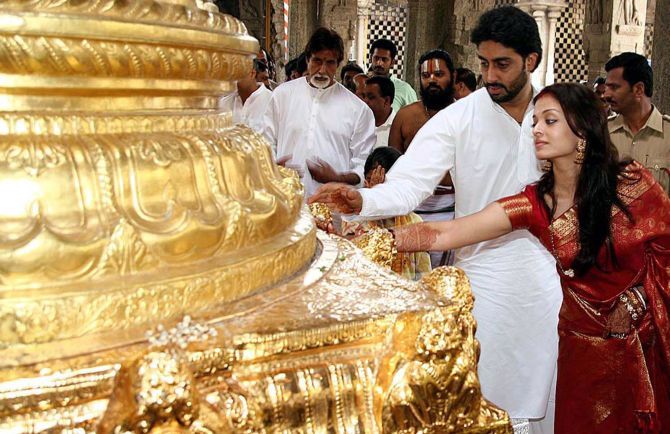Whether you give stocks held for more/less than a year, benefits are nominal; donating cash is better.

The Siddhivinayak temple has announced it will accept shares as donation, following the example of the Tirupati temple.
However, remember that from a tax perspective, it would be a good idea to donate money rather than stocks.
When you donate money to recognised charitable institutions, you get a tax deduction under Section 80G of the Income Tax Act.
“But, if the donation is in any other form (read stocks) there’s no income tax benefit available,” says Kuldip Kumar, partner and leader, personal tax, PwC India.
You want to donate Rs 1 lakh to a temple. You have the option of giving cash or gifting shares.
If the stocks have been held for more than a year, you can sell these and transfer Rs 1 lakh. This will allow you to claim deduction under Section 80G.
Also, there won’t be any capital gains tax on liquidating shares as long-term investments (held for over a year) in equities are exempted.
In this case, you can claim 50 per cent deduction of the amount donated, that is, Rs 50,000.
This will translate to savings of Rs 15,000 if you are in the highest income tax bracket.
“But, remember that according to the income tax laws, you can only claim deduction for 10 per cent of your income for donations made under the section,” says Suresh Surana, founder, RSM Astute Consulting Group.
If you donate stocks held for less than a year, you will save on the capital gains tax of 15 per cent.
Say, you donate Rs 1 lakh worth of shares to a temple that have been held for less than one year, you will end up saving Rs 15,000 – the amount you would have paid if you had sold it to raise money.
“If you transfer shares directly, you don’t need to pay short-term capital gains tax because they will be considered a gift,” says Gautam Nayak, tax partner, CNK & Associates.
If, however, you sell short-term stocks and raise money for donation, short-term capital gains tax of 15 per cent will apply. So, the amount you get back will reduce accordingly.
To make the donation, you can transfer shares online using the temple’s demat account number.
If you have a Central Depository Services (India) demat account, you can register the Siddhivinayak trust’s demat.
This will enable transfer the same day. If you have a National Securities Depository account, you have to fill up the delivery instruction slip and submit to your broker, and this process can take about four-five days.
“The value of the shares considered will be the last trading price of the day stocks reach the Siddhivinayak trust account,” says a spokesperson of SBICAPS Securities.
The stocks are sold either the same day or next.
“As a trust, we don’t trade in shares and, therefore, any securities we receive will be immediately liquidated and cash will be deposited in the trust’s bank account,” says Narendra Rane, chairman, Shree Siddhivinayak Ganapati Mandir Nyas (Prabhadevi) Trust.
He says receipt for the donation will be generated online and sent to the devotee electronically.









